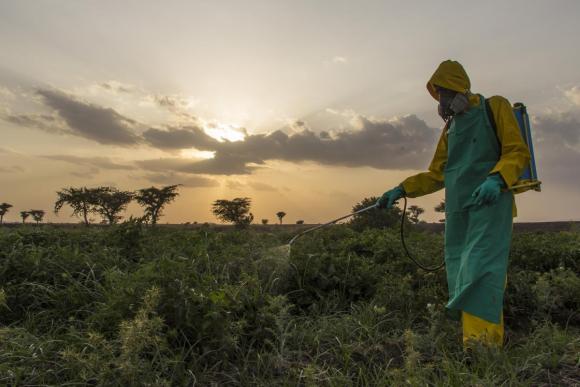-
About
- Our Work
- Get Involved
- Stay Updated
Ongoing discussion: Identifying best practices for reducing the use and impacts of agrochemicals

The intensive use of synthetic pesticides and fertilizers to agricultural crops has considerable negative impacts related to health and safety of farmers and workers, environmental damage (on soil, water and biodiversity), food safety and international trade. While many highly hazardous pesticides have been banned by international conventions or are prohibited under voluntary sustainability standards, the problems on the ground remain persistent. There is an urgent need – also within certified value chains – to ensure that highly hazardous substances are phased-out and that the overall load of toxic agrochemicals is reduced.
There are many parties involved in addressing these issues, from governments and NGOs, to supply chain players and agrochemical producers. Interventions range from training on appropriate usage of pesticides and replacing chemicals with (bio-friendly) alternatives to integrated pest management and re-designing farming systems. However, there is limited knowledge on suitable alternatives and on how their adoption can be accelerated in order to achieve impact. We therefore invite you to share and discuss current practices, and what approaches are able to achieve impact at scale in reducing the negative impacts of agrochemicals.
Here are two questions to kick-off the discussion with
What approaches are available to reduce the use of agrochemicals and their risks?
As per your experience, what works and what doesn’t work?To join, visit the online discussion page.
Photo: Feed the Future
Tags:About the author
Related Posts
Comments
No comments made yet. Be the first to submit a commentBy accepting you will be accessing a service provided by a third-party external to https://archive.ypard.net/
Get in touch
Email: [email protected]
YPARD Global Coordination UnitHosted by AGRIDEA and the Czech University of Life Sciences Prague
Lausanne, Switzerland and Prague, Czech Republic - Our Work

